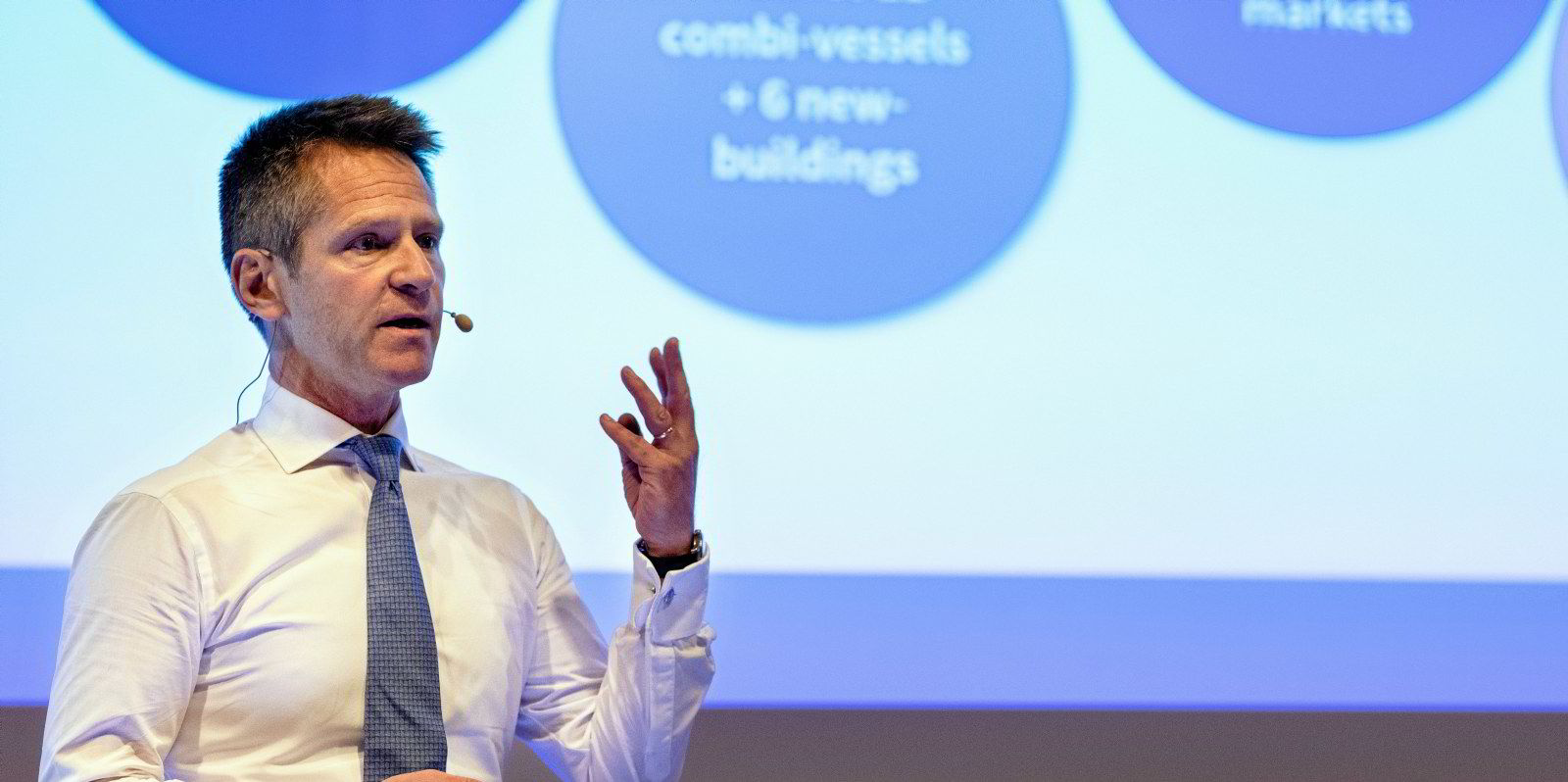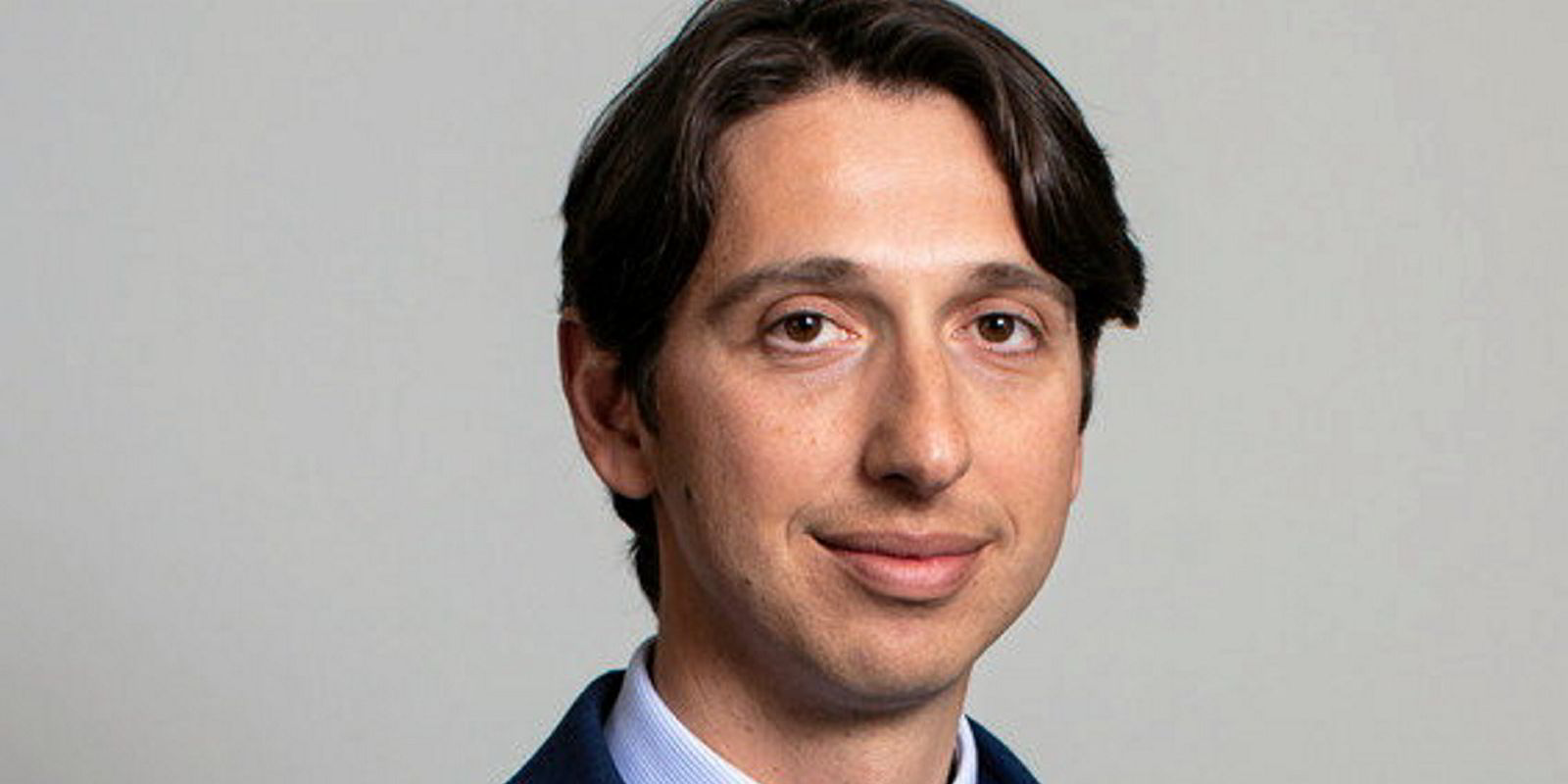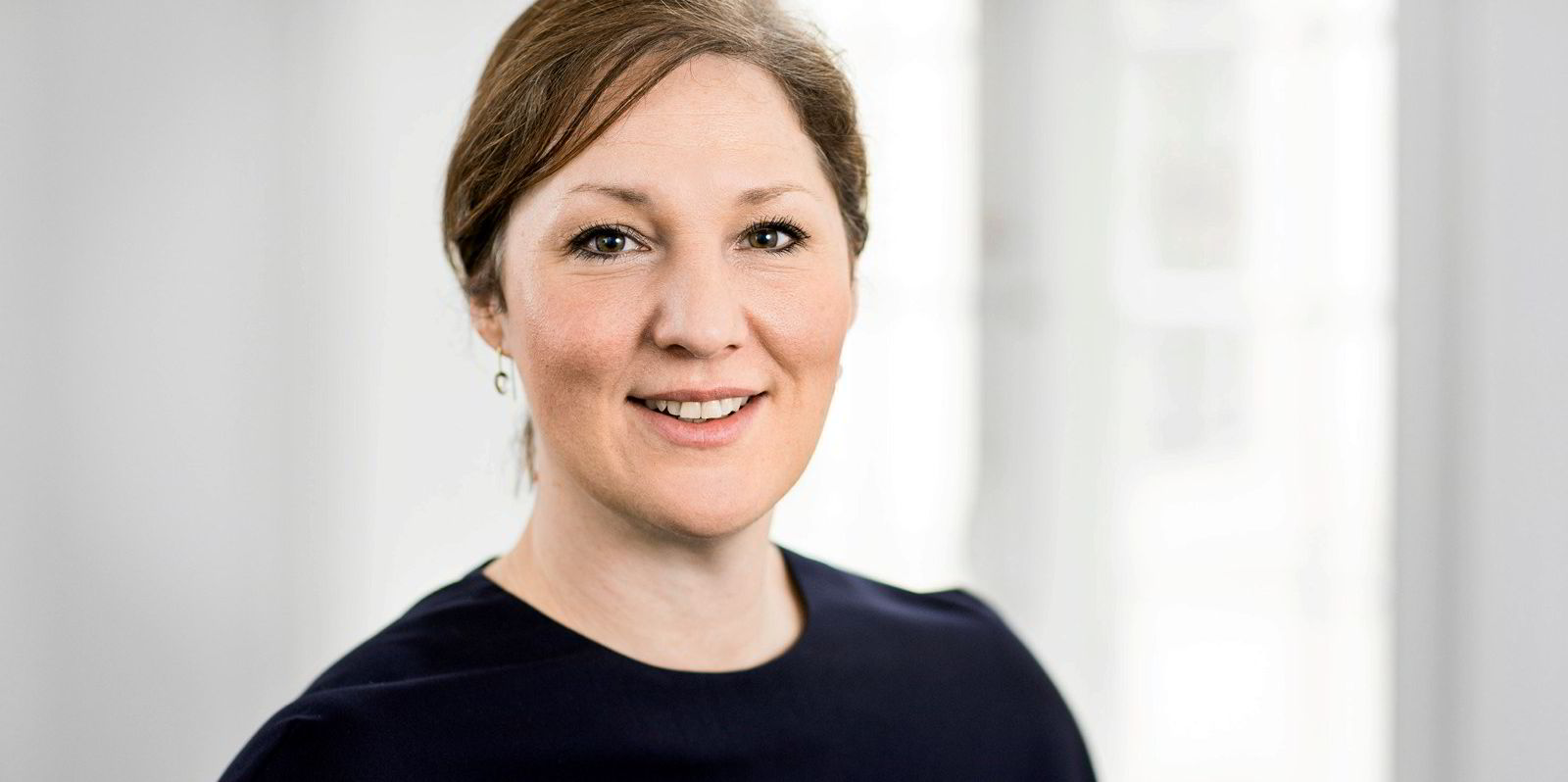Norwegian shipowner Klaveness Combination Carriers (KCC) has revealed a new decarbonisation strategy to 2030 and beyond after admitting the process always takes longer than expected.
The Oslo-listed owner of ships that can handle both wet and dry bulk cargoes last laid out emissions-reduction targets in February 2020.
But major world events have since intervened, slowing progress for the company.
Chief executive Engebret Dahm told TradeWinds there had been two main targets for the period to 2022.
Average CO2 emissions per vessel were to be cut by 15% relative to 2018.
“We achieved 14% which is pretty much in line with the target,” he said.
And KCC also aimed to reduce carbon intensity by 25%, with the owner actually achieving 9%.
Dahm blamed the negative impact of the Covid pandemic, with frequent deviations for crew changes and high levels of port congestion.
Efficiency was also hit by the war in Ukraine, which has impacted trade flows and port turnaround times.
The CEO explained that while progressing "a lot" with the introduction of its Cleanbu oil product and dry bulk ships, it has taken a longer time than expected to perfect voyage efficiency.
There has also been a longer lead time to implement energy efficiency measures on vessels, Dahm said.
Big cut by 2030
KCC said the new target is a 45% reduction in carbon intensity by 2030 compared against 2018, driven largely by substantial efficiency improvements.
The more immediate target is a 30% cut by 2026.
The owner will introduce sustainable biofuels as part of this drive. They will constitute a minimum 15% of the fuel mix, it said.
KCC also wants to have its first zero-emission newbuilding running in 2030.
In a podcast released as part of the strategy launch, Dahm told Norwegian Shipowner’s Association head of communications Christine Korme that regulatory support for its efforts has been slower than expected.
He said the IMO has not yet come up with efficient or logical proposals.
"We're still waiting for the IMO to get its act together and come up with some predictable regulations," Dahm added.
The KCC CEO fears this could take many years, "but that's what the industry needs."





